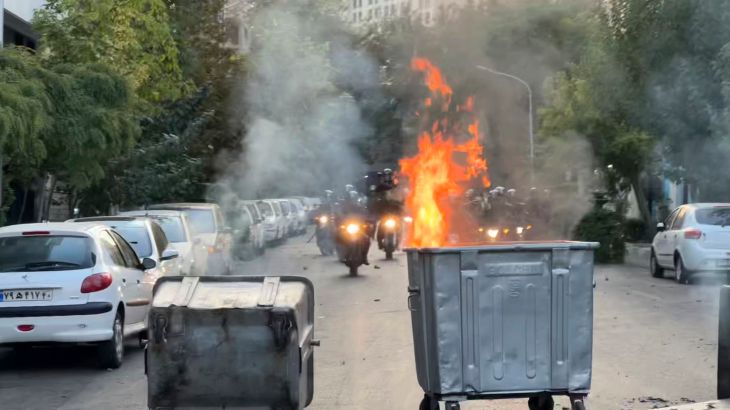Iranian rapper wins appeal against protests-linked death sentence
Supreme Court accepts Saman Seyyedi’s appeal, but 22-year-old Mohammad Ghobadlou’s bid is rejected and he could be executed soon.

Tehran, Iran – An Iranian rapper has won an appeal against his death sentence in relation to the country’s ongoing protests, while another man’s bid against a similar sentence was rejected.
The Iranian judiciary said on Saturday the Supreme Court had accepted the appeal of Saman Seyyedi, an ethnic Kurd rapper also known as Saman Yasin. It cited flaws in the investigation of the case without disclosing further details.
Keep reading
list of 4 itemsFamous Iranian actress arrested after supporting protesters
UN expels Iran from women’s rights body for protest crackdowns
EU sanctions Iran over protest crackdown and Russia drone sales
Seyyedi, who had supported protesters online and had written several protest songs, was convicted by an Iranian court of moharebeh or “waging war against God”. He had been accused of attempting to kill security forces and shooting a handgun into the air during the unrest that authorities refer to as “riots”.
There were reports last week – unconfirmed by Iranian officials – that Seyyedi had survived after trying to kill himself in prison amid reports that he could be executed imminently.
In an initial announcement on Saturday, the judiciary’s official news website said another young man, Mohammad Ghobadlou, had also successfully appealed his death sentence. But an update later in the day clarified that his appeal was rejected by the Supreme Court.
The 22-year-old was convicted by a Revolutionary Court of “corruption on Earth” for allegedly running over and killing a member of the security forces with his car and injuring several others.
Following the announcement, Amnesty International said authorities must immediately quash his death sentence, issued less than two months after his arrest on September 22 after a “sham unfair trial”.
Iran has so far executed at least two people in cases related to the protests. The second execution was carried out earlier this month as Majidreza Rahnavard was hanged from a construction crane in public view for allegedly killing two members of security forces.
Amnesty International has warned that more than two dozen more people could potentially be facing execution soon.
The protests began in mid-September after the death of Mahsa Amini, a young woman who was arrested by the country’s morality police in Tehran for allegedly not complying with a mandatory dress code for women.
Saturday marked 100 days since the start of the protests, and videos online showed demonstrations in several cities at night. Internet connections continue to be severely throttled as all major global social media and messaging services have been blocked.
Iranian authorities have accused foreign powers, including the United States and Israel, of being behind the country’s unrest. The US, the European Union and several others have imposed human rights sanctions on Tehran, which has responded with sanctions of its own.